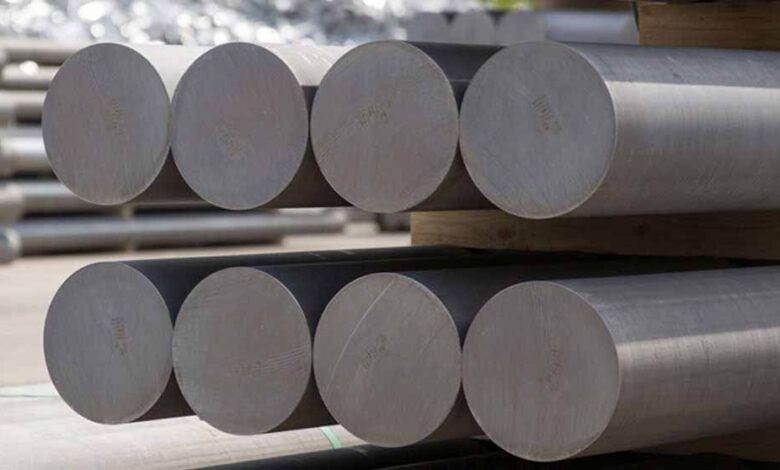Aluminium Bars: Benefits, Types, and Industrial Applications

Aluminium bars are one of the most in-demand materials in the world of engineering and construction. Their combination of lightweight structure, excellent corrosion resistance, and high strength make them ideal for countless applications across different industries. Whether you’re building machines or constructing large buildings, aluminium bars offer the right balance of performance and cost-efficiency.
In this blog, we will dive deep into what aluminium bars are, their types, properties, major benefits, and where they are most commonly used.
What Are Aluminium Bars?
Aluminium bars are solid, extruded sections of aluminium metal that come in various shapes, including round, square, flat, and hexagonal. These bars are manufactured through processes like extrusion and rolling, and they are available in a wide range of grades and finishes. Their physical and chemical properties make them useful for both lightweight and heavy-duty applications.
Aluminium bars can be alloyed with elements like magnesium, silicon, or zinc to enhance specific characteristics such as strength or corrosion resistance.
Types of Aluminium Bars
There are different shapes and grades of aluminium bars, each suited for specific purposes:
1. Round Bars
These are commonly used in machining applications and shafts. They offer high precision and smooth surfaces, making them ideal for mechanical parts.
2. Flat Bars
Flat aluminium bars are popular in architectural and structural applications. They provide excellent support and are easy to fabricate and weld.
3. Square Bars
Square bars offer a solid structure and are often used in frames, supports, and decorative purposes.
4. Hex Bars
These are primarily used in manufacturing fasteners, nuts, and bolts, where geometric precision is necessary.
Key Properties of Aluminium Bars
✔ Lightweight
Aluminium is about 2.7 g/cm³, which makes it nearly three times lighter than steel. This makes aluminium bars easier to transport, handle, and install.
✔ High Strength
Although lightweight, aluminium bars provide high tensile and yield strength, especially in alloyed grades such as 6061 or 7075.
✔ Excellent Corrosion Resistance
Aluminium develops a natural oxide layer that protects it from rust and corrosion. This makes it suitable for marine and outdoor environments.
✔ Good Thermal and Electrical Conductivity
Aluminium bars conduct heat and electricity well, which makes them useful in heat sinks, wiring systems, and electrical components.
✔ Non-Toxic and Non-Magnetic
Aluminium is safe for use in food processing and medical equipment and doesn’t interfere with magnetic fields, making it perfect for electronics.
Benefits of Aluminium Bars
1. Versatile Applications
Aluminium bars are used in everything from aerospace parts to window frames. Their ability to perform in different environments makes them highly versatile.
2. High Machinability
They are easy to cut, shape, drill, and weld, which speeds up manufacturing processes and reduces costs.
3. Sustainable Material
Aluminium is 100% recyclable and requires only 5% of the energy to recycle compared to primary production. This makes aluminium bars a sustainable material choice.
4. Aesthetic Appeal
With a smooth, clean finish, aluminium bars are also used in decorative and architectural features where appearance matters.
5. Durability
Aluminium bars retain their strength and appearance even under challenging conditions, ensuring long-term performance and low maintenance.
Popular Grades of Aluminium Bars
Aluminium bars are available in various alloys, each with specific properties:
- 6061 Aluminium Bar – Excellent strength, weldability, and corrosion resistance. Used in structural and aerospace applications.
- 6082 Aluminium Bar – High strength and good resistance to corrosion. Commonly used in marine and transport applications.
- 7075 Aluminium Bar – One of the strongest aluminium alloys, ideal for aerospace and high-stress components.
- 2024 Aluminium Bar – Offers excellent fatigue resistance and is commonly used in aerospace engineering.
Industrial Applications of Aluminium Bars
🏗 1. Construction and Infrastructure
Aluminium bars are widely used in beams, columns, and frames due to their high strength-to-weight ratio and corrosion resistance. They are also a favorite in bridge construction and modular building systems.
🚗 2. Automotive and Transportation
In cars, trucks, and trains, aluminium bars help reduce weight, improve fuel efficiency, and enhance overall performance. They are used in body frames, engine parts, and interior components.
✈️ 3. Aerospace Industry
Aluminium bars, especially in high-strength grades like 7075, are used in aircraft wings, fuselage frames, and landing gear components.
🔌 4. Electrical Engineering
Aluminium’s conductivity makes it perfect for busbars, connectors, and heat sinks in electrical panels and equipment.
⚙️ 5. Machinery and Equipment
From machine components to industrial tools, aluminium bars serve as key materials in manufacturing high-precision, durable parts.
🚢 6. Marine Industry
The saltwater-resistant nature of aluminium bars makes them essential in shipbuilding, offshore platforms, and boat accessories.
🏡 7. Consumer Goods and Appliances
Aluminium bars are used in furniture, kitchen utensils, ladders, and sporting goods for their lightweight and corrosion-resistant properties.
How to Choose the Right Aluminium Bar
When selecting an aluminium bar, consider the following factors:
- Application Type – Choose the appropriate shape and alloy based on where and how the bar will be used.
- Mechanical Requirements – Check the required strength, hardness, and flexibility.
- Corrosion Conditions – For outdoor or marine use, choose corrosion-resistant grades like 6082 or anodized aluminium bars.
- Budget – Some high-strength alloys are more expensive, so balance performance needs with budget constraints.
- Fabrication Needs – Ensure the selected alloy is suitable for cutting, welding, or machining.
Final Thoughts
Aluminium bars have become a cornerstone material for industries aiming for strength, durability, and sustainability. With their impressive properties and flexibility, aluminium bars are helping engineers and manufacturers build the future—lighter, faster, and more efficiently.
From construction to aerospace, the demand for aluminium bars continues to grow. Choosing the right type and grade can significantly impact the performance and lifespan of your project.
If you’re looking for high-quality aluminium bars, always partner with reliable suppliers who offer certified materials and a variety of options tailored to your application.



